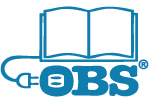BEA Retrospective : Bounteous to Unbound
BEA has always been the book industry’s main show of the year in the US, when publishers release their Fall lists to the bookstores and libraries, offering advanced peeks at exciting new books in the form of readings, advance galleys, and author breakfasts. Vendors to the trade used to enjoy a major presence at the →
